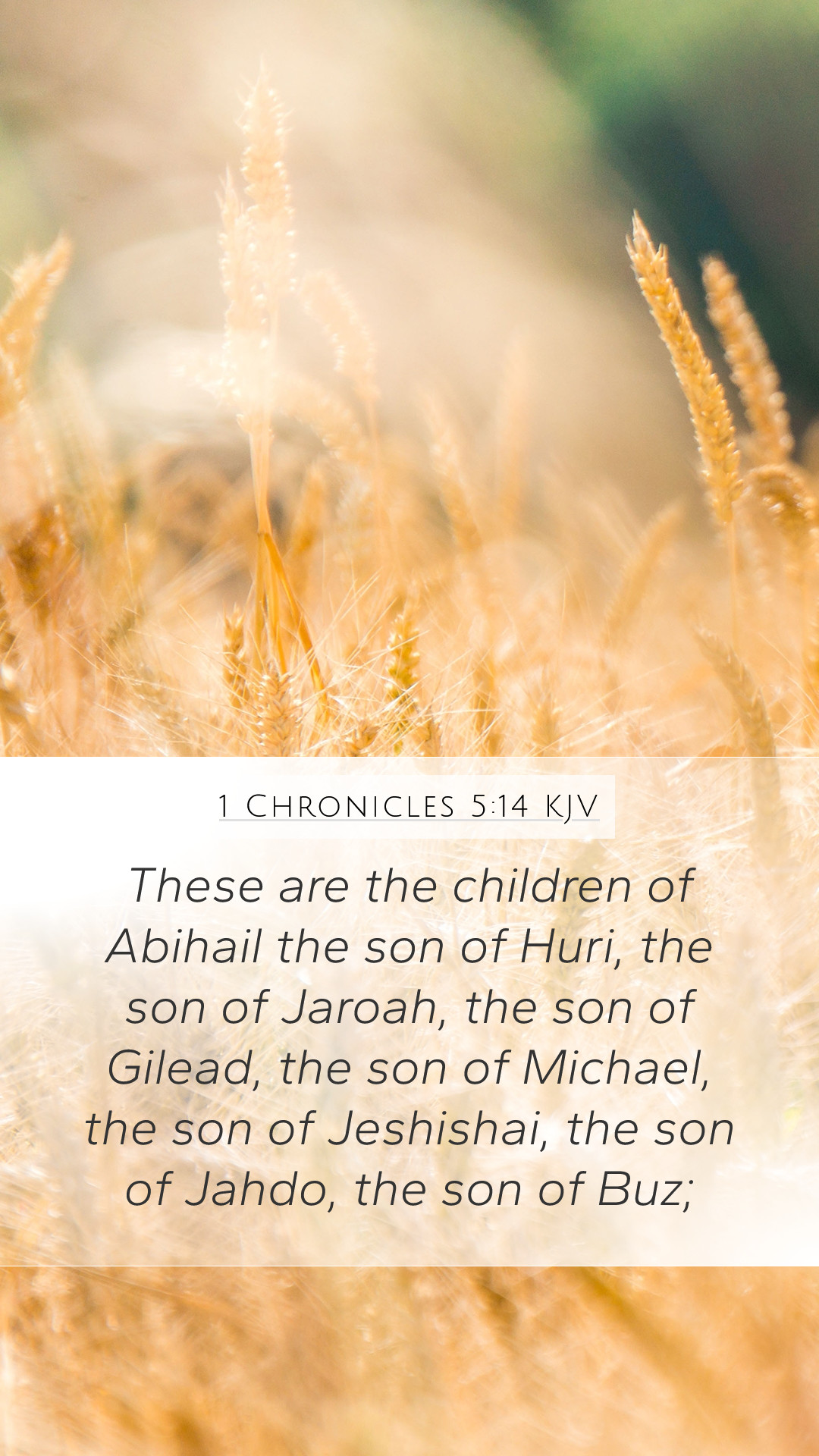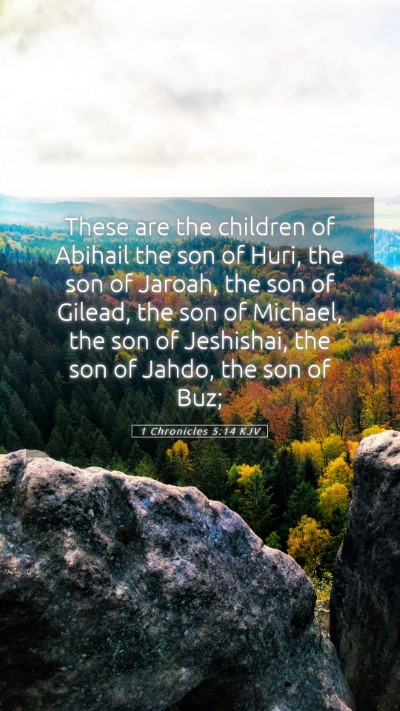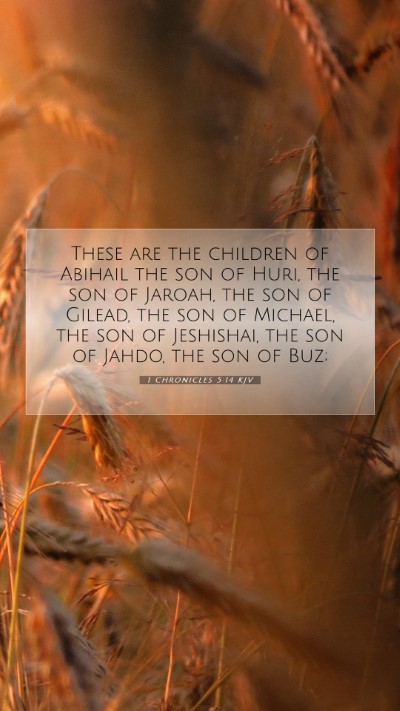Bible Verse Commentary: 1 Chronicles 5:14
The verse 1 Chronicles 5:14 reads: "These are the sons of Abihail the son of Huri, the son of Jaroah, the son of Gilead, the son of Michael, the son of Jeshishai, the son of Jahdo, the son of Buz;" This passage lists genealogical details that shed light on the identity and origin of certain tribes in Israel, particularly the tribes of Reuben, Gad, and the half-tribe of Manasseh.
Understanding the Context
To grasp the meaning of this Bible verse, it is crucial to consider its historical and cultural context. Genesis through 1 Chronicles emphasizes the importance of lineage and heritage in Israelite society, underscoring God's covenant with His chosen people.
Insights from Commentaries
- Matthew Henry: In his commentary, Henry highlights the significance of establishing genealogies as God's method of preserving the sanctity and order within His people. He emphasizes that genealogies serve to demonstrate God's faithfulness across generations.
- Albert Barnes: Barnes notes that the purpose of these detailed genealogies is to assert the legitimacy of the priestly line and the importance of the Levites' roles in the worship of God. This lineage reminds the Israelites of their spiritual heritage.
- Adam Clarke: Clarke provides an in-depth analysis of the names listed, explaining their meanings and the historical significance behind each figure. He argues that understanding these names can enrich our comprehension of God’s dealings with His people.
Key Themes and Implications
This verse reveals several central themes in Scripture:
- Divine Sovereignty: The record of names shows that God orchestrates history through specific families and individuals to fulfill His promises.
- Covenantal Faithfulness: Genealogies remind readers that God's promises span generations, emphasizing His unchanging nature.
- Identity and Belonging: Knowing one’s lineage is important for understanding community and heritage, particularly in a religious context.
Application in Contemporary Life
Understanding this biblical passage can lead to various applications in our spiritual journeys:
- Recognizing the importance of our spiritual heritage and how it informs our faith today.
- Valuing the significance of community and our place within the body of Christ.
- Encouraging individuals to delve deeper into their own genealogies of faith, tracing how God has operated in their families.
Cross References
To gain further understanding of 1 Chronicles 5:14, consider these cross-references:
- 1 Chronicles 2:1-2 – This passage also discusses genealogical records and highlights the importance of lineage.
- Genesis 46:10 – Lists the sons of Jacob in a way that connects to the broader themes of family and inheritance.
- Numbers 1:5-15 – Gives an account of the tribal leaders and their roles in Israel, reinforcing the importance of identity.
Conclusion
In summary, 1 Chronicles 5:14 serves as an essential piece of the biblical narrative, reminding readers of God’s promises, the importance of genealogies, and how they contribute to our understanding of Scripture. This passage illustrates how the meaning of Bible verses can connect the past with our present faith experiences, inviting us to study deeper into history while establishing our roots in His Word.
Engaging in Bible Study
For those seeking a more profound understanding of Scripture, engaging in bible study groups, utilizing bible study tools, and exploring available bible study resources can be incredibly beneficial. By diving into the historical context of passages like 1 Chronicles 5:14, believers can gain clarity on how to interpret Bible verses for practical application in daily life.
Whether through online bible study platforms or personal devotion, the exploration of bible study lessons related to genealogies can illuminate our understanding of the overarching story of God's redemptive plan throughout history.


